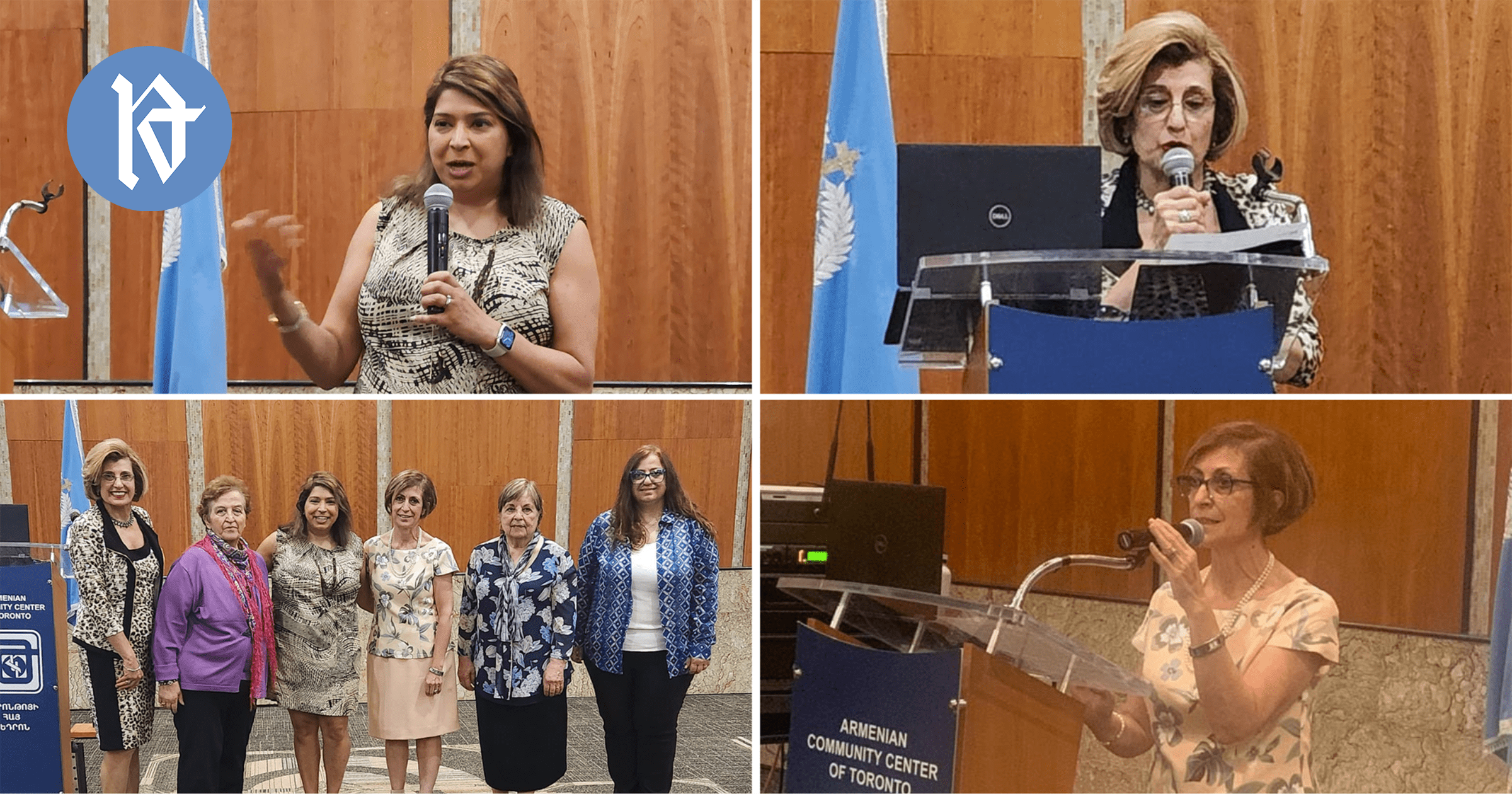By Dr. Ani Hasserjian
On Friday, May 12, 2023, Valerie D’Pavia delivered a captivating lecture titled “The brain story” at the Armenian Community Centre of Toronto. Organized by the Armenian Relief Society (ARS) Toronto Roubina chapter’s educational committee, the event aimed to shed light on the intricate process of brain development and its profound impact on individuals’ lifelong physical and mental well-being.
Dr. Ani Hasserjian, chair of the educational committee, opened the event as the master of ceremonies. In her welcome remarks, she highlighted the vital role played by the ARS in empowering Armenian women to actively serve their communities. Beyond their commendable efforts in humanitarian services and the preservation of Armenian cultural identity, Dr. Hasserjian emphasized the society’s commitment to fostering education among its members to encourage their active participation in public service.
Dr. Hasserjian also delved into the history of the ARS Toronto chapter, which was established in 1924 to support the education of the Georgetown Armenian Boys and Girls. For the past six decades, the ARS Roubina chapter has been actively involved in education, spearheading initiatives such as the ARS Summer School in 1970, the ARS Day School in 1979, and the ARS Social Services Office in 1987. These endeavors have played a pivotal role in nurturing the Armenian community.
Emma Basmadjian, the ARS Roubina chapter executive board’s representative to the educational committee, introduced the esteemed lecturer, Valerie D’Paiva, RN, BScN, MN. With a wealth of experience as a public health leader in government administration, specializing in mental health and resilience, D’Paiva currently serves as the Manager of Child and Family Health Division at the York Region Public Health in Ontario.
During her enlightening presentation, D’Paiva explored the science behind brain development and how experiences, starting from the prenatal stage and continuing throughout life, shape the brain, ultimately influencing one’s physical and mental health. She emphasized that brains are not merely “born” but instead constructed through a complex interplay of various factors. Early childhood experiences emerged as a significant social determinant of health, illustrating their profound impact on an individual’s well-being.
Mrs. D’Paiva outlined the five pillars of brain development as follows: Brain Architecture, Serve and Return, Toxic Stress, Air Traffic Control, and Resilience. She underscored that while anyone can cultivate resilience at any stage of life, the foundation of resilience is most easily built during early childhood. Furthermore, she presented eight key steps to enhance resilience: accepting change, fostering a continuous learning mindset, taking charge, finding a sense of purpose, adapting skills, reflecting on experiences, nurturing relationships, and paying attention to self-identity.
Following the lecture, attendees had the opportunity to engage in a stimulating question-answer session, where Maral Misirlian, chair of the Roubina chapter, expressed gratitude to D’Paiva by presenting her with an art book as a token of appreciation for her insightful and thought-provoking presentation. The event, hosted by the ARS Social Services Office and the ARS Educational Committee, concluded with a warm and welcoming reception, fostering a sense of community and connection among all attendees.

